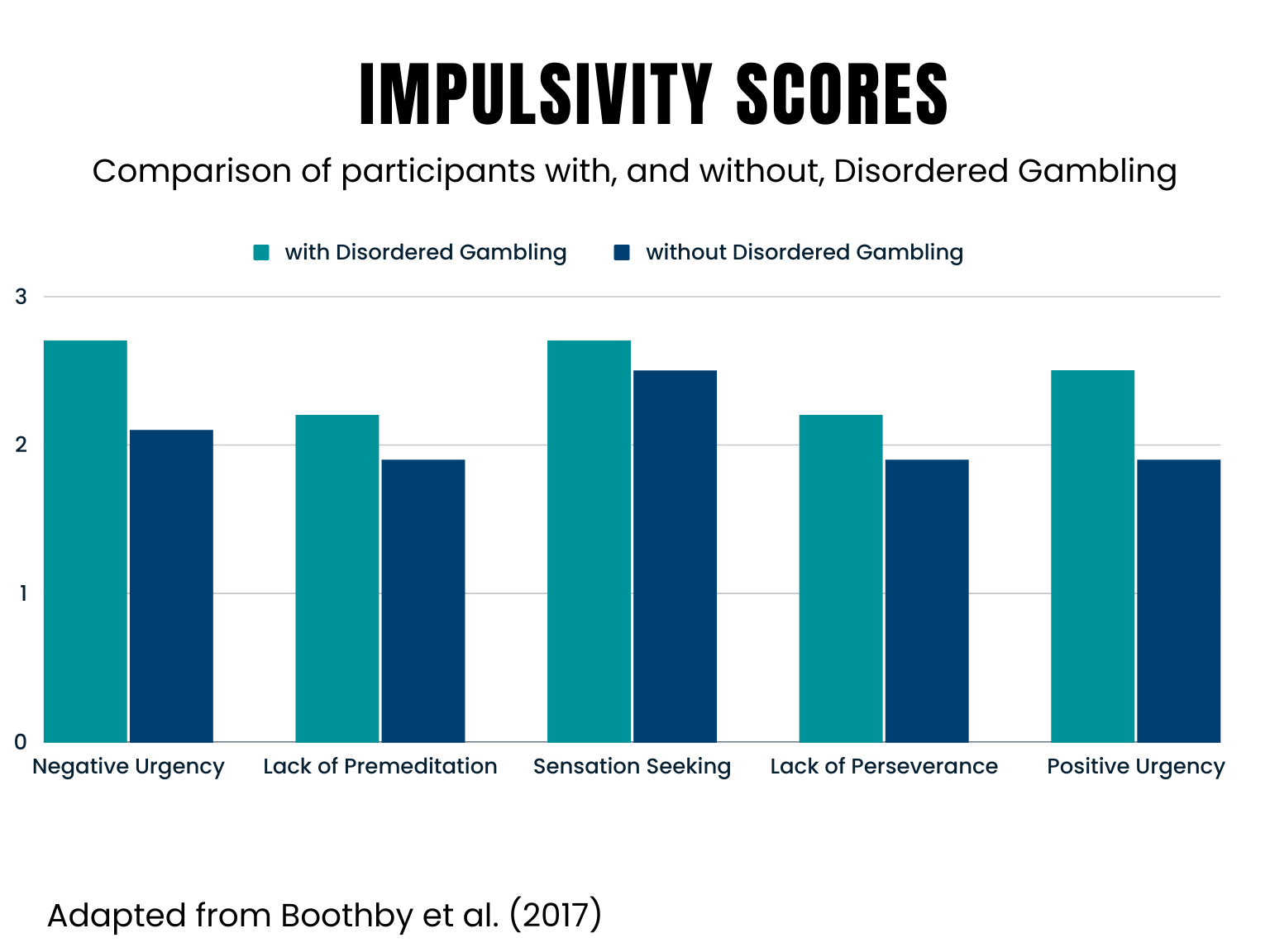Many people who experience problems with gambling experience other substance use or mental health conditions, and smoking is a common one. Furthermore, people who gamble and smoke have worse symptoms of gambling problems than those who gamble and don’t smoke. Greater impulsivity is also associated with both tobacco use and gambling-related problems. This week, as part of our Special Series on Gambling Disorder, ASHES reviews a study by Célina Boothby and her colleagues that looked at whether levels of impulsivity distinguish people with comorbid smoking and gambling problems from people with only one, or neither, of those problems.
What was the research question?
Are people who have problems with both smoking and gambling more impulsive than people with only one or neither of those problems?
What did the researchers do?
The researchers distributed an online survey to 650 people who said they had gambled in the past year. The survey assessed each participant’s gambling status with the Problem Gambling Severity Index (a score of 5 or more indicated the presence of gambling-related problems) and their smoking status by asking if they currently smoked daily, occasionally, or not at all. The survey also included the UPPS-P Impulsive Behavior Scale, that measures a person’s trait impulsivity on five different facets: negative urgency, positive urgency, lack of perseverance, lack of premeditation, and sensation seeking.
What did they find?
People who experienced gambling-related problems exhibited significantly higher impulsivity on all five facets compared to people who gambled without experiencing problems. Those who smoked daily experienced significantly more negative urgency (a lack of control when one experiences extreme negative emotions) than those who did not smoke. Furthermore, people who experienced both gambling-related problems and smoked daily also experienced higher negative urgency than people who experienced gambling problems but didn’t smoke as frequently.
 Figure. Mean UPPS-P Impulsivity scores among participants with, versus without, Disordered Gambling. All pairwise comparisons were statistically signifiant. Click image to enlarge.
Figure. Mean UPPS-P Impulsivity scores among participants with, versus without, Disordered Gambling. All pairwise comparisons were statistically signifiant. Click image to enlarge.
Why do these findings matter?
This study supports the idea that people who smoke and experience gambling-related problems might be a distinct subgroup facing different challenges from people who only have only one of these disorders. Having greater negative urgency means that when these people face difficult emotional situations, they might be more likely to engage in impulsive smoking or gambling. Along with evidence that nicotine can cause a person to bet larger amounts of money while gambling, these findings suggest that the consequences of these two expressions of addiction can interact with each other in ways that could make it harder to treat either problem. Learning more about how comorbidity might complicate gambling-related problems will better inform how we address these problems.
Every study has limitations. What are the limitations in this study?
The current study only asked participants about their smoking and gambling status over the past year – it is possible for someone to have had both smoking and gambling-related problems at different times in life.
For more information:
If you are thinking of quitting smoking or gambling, there are a number of helplines available to talk to an expert. For additional tools, please visit the BASIS Addiction Resources page.
— Rhiannon Chou Wiley
What do you think? Please use the comment link below to provide feedback on this article.




